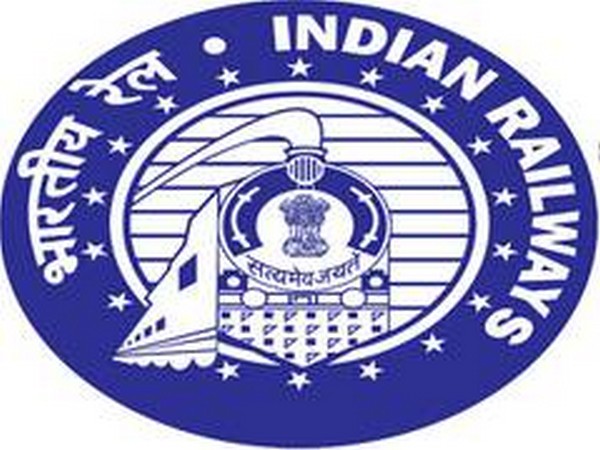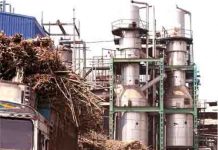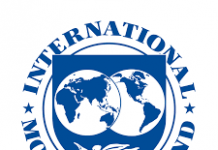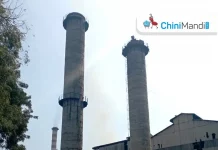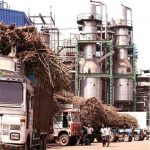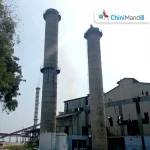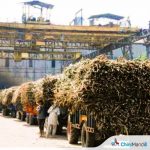The Government of India, as part of its Nationally Determined Contributions (NDCs), has set a target of 33% emissions intensity reduction, with the transport sector being one of the key sectors with substantial mitigation potential.
One of the most vital transportation emissions mitigation strategies agreed to by the Government of India was increasing the share of Indian Railways in the movement of freight from the current ~35-36% to 45% by 2030.
Indian Railways has a major role in contributing India’s NDC towards combating Climate Change through several means:
- To enhance the share of the Railways in the overall land based freight transport from present 36% to 45% by the year 2030.
- Indian Railways is setting up Dedicated Freight Corridors (DFCs) across the country. The first phase of the project alone is estimated to reduce emissions by about 457 million ton CO2 over a 30 year period.
- Increase the share of renewable energy in its energy mix.
- Railways to further improve its energy efficiency for both diesel and electric traction thereby facilitating the reduction of GHG emissions for the country.
- PAT Scheme to be implemented in railway sector.
- Use of 5% blending of biofuels in traction diesel fuel.
- Improve water use efficiency by 20% upto 2030.
- Tree plantation to increase Carbon sink.
- Waste Management and Pollution control.
- Adopting the good practices on Green Buildings, Industrial Units and other establishments for the management of resources and infrastructure to achieve
- Environmental Sustainability in growth of IR.
- Contribution in “Swachh Bharat Mission”.
- IR has set a target of becoming a “Net Zero” entity by 2030 by completing electrification of all railway tracks.
Indian Railways has taken steps to streamline its initiatives with regards to environmental management, with some notable initiatives including Energy Efficiency Management, Renewable and Alternate sources of Energy, Water conservation, Afforestation, Water Management and Green Certifications.
The reforms undertaken by Indian Railways since 2014 can be broadly categorized in following areas:
Net-Zero Carbon Emission:-
- IR has planned to gradually reduce its carbon footprint and become Net Zero Carbon Emitter by 2030. IR will attempt to reduce its carbon footprint primarily through sourcing of its energy requirements from renewable energy sources. By 2029-30, expected requirement of installation of renewable capacity would be about 30 GW. IR has installed 142 MW solar rooftop capacity and 103.4 MW of Wind energy till August, 2022.
- Other strategies towards Net Zero emitter includes taking a multi-pronged approach of Electrification of its routes, shifting from diesel to electric traction, promotion of energy efficiency, construction of Dedicated Freight Corridors, Green certification of Railway Establishments etc.
- IR has electrified 52,508 RKM out of total BG network of 65,141 RKM (80.61%).
- With 100% electrification, the demand for electricity will go up to about 72 BUs by 2029-30 from 21 BUs in 2019-20. Carbon emission by 2029-30 as per Business As Usual mode is estimated to be 60 million tons which would be offset by various measures planned by IR.
Issuance of Water Policy 2017 for effective water management:-
Water Policy 2017 has been issued to all Zonal Railways and Production Units for implementation in Railway Stations, Trains, Railway Colonies etc. This is a part of overall efforts to achieve 20% reduction in water consumption by 2020 by the Government of India as part of Nationally Determined Contribution. Main objective of this policy are to improve water use efficiency by effective demand and supply management, installing water efficient systems and setting up Water Recycling Plants on railway land.
Creation of Additional Carbon sink by Afforestation
- Afforestation on vacant railway land and in between sections is carried out by Railway departmentally. In pursuance of Railways’ commitment towards environmental improvement and sustainable development, Forest Departments of States are being involved in plantation as well as maintenance and disposal of trees.
- IR has been planting around 1 crore trees annually since 2017 onwards. 72 lakh saplings have been planted during the year 2021-22.
Waste Management:-
- Waste to energy/compost/biogas plants/Material recovery facility have been set at more than 250 stations to manage waste. Separate bins have been provided for dry and wet waste for waste segregation at source.
Green certification/Consent to operate from State Pollution Control Board since 2015
- Around 700 Railway Stations have been certified for implementation of Environment Management System to ISO:14001
- More than 545 stations have achieved Consent to operate (CTO) from respective State Pollution Control Board.
- 31 railway buildings (including offices, training institutes, hospitals and schools), 32 stations and 55 workshops/PUs have achieved green certification.
Policy for allocating 1% cost in all sanctioned Works for executing environment related works:-
- To contain the impact of activities on environment and for protection of the environment, policy issued in May 2016 making provision for allocating 1% cost in all sanctioned Works for executing environment related work.
Cleanliness of Trains & Railway Stations:-
- Cleanliness of Trains & Railway stations have gained increased thrust in last 08 years with the increasing numbers of mechanized cleaning contracts at stations & Coaches in trains, rag picking & garbage disposal contracts at stations and On Board Housekeeping Service (OBHS) increased in number of trains.
Environment friendly Bio–Toilets for Passenger Coaches:-
- Environment-friendly Bio-toilets for passenger coaches have been developed by Indian Railways (IR) jointly with Defence Research & Development Organization (DRDO).
- 9,587 bio-toilets were fitted in 3,647 coaches up to March 2014. With the installation of 2,58,990 bio-toilets in nearly 73,110 coaches up to March 2021, the work of fitment of bio-toilets in all the passenger carrying coaches, running on Indian Railways has been successfully completed.
- The direct discharge of human waste from trains has thus been eliminated in line with ‘Swachh Bharat Mission’.
Third party Audit/Survey including Passenger feedback on Cleanliness:-
- Third Party audit cum survey on cleanliness of major stations started in 2016 and carried out again in 2017, 2018 and 2019.
- First ever Third Party audit cum survey on cleanliness of important trains was carried out in 2018.
- Such surveys provide independent assessment and also instill a sense of healthy competition in improving cleanliness in passenger interface areas.
Standard Bid Document for Housekeeping of Stations and Trains & General Conditions of Contract for Services:-
- Standard Bid Document (SBD) (Aug 2017) and General Conditions of Contract for Services (GCCS) (Feb 2018) have been issued to improve effectiveness of housekeeping / cleaning contracts with special focus on passenger interface areas.
(Source: PIB)

